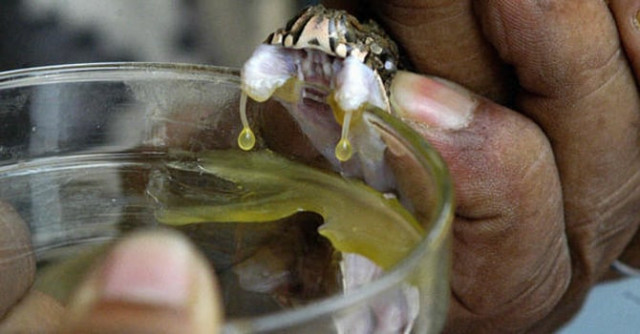Rs2.8b spent, still no anti-snake venom in Sindh
PAC directs Livestock Department to expedite local production as province faces over 54,000 snakebite cases annually

Sindh has yet to develop an indigenous anti-snake venom vaccine despite over 54,000 snakebite cases reported annually and a total allocation of Rs2.8 billion under the Annual Development Program (ADP) since 2012. This was revealed during a Public Accounts Committee (PAC) meeting of the Sindh Assembly on Thursday.
Presided over by PAC Chair Nisar Khuhro, the meeting was informed that the Sindh Health Department spent Rs1.7 billion on a snakebite vaccine project between 2012 and 2023. However, the initiative was transferred to the Sindh Livestock Department in 2024, with an additional Rs350 million allocated for its development.
Dr Nazir Hussain Kalhoro, Director General of the Sindh Livestock Department, informed the committee that the Sindh Institute of Animal Health has recently approved a Rs300 million tender to import machinery and equipment from Germany, Switzerland, and the USA for the manufacturing of the vaccine.
Dr Kalhoro assured that the vaccine production process would begin within a year, involving the extraction of venom from snakes and the use of horse blood samples to create the anti-venom. Some snakes and horses have already been procured for this purpose.
Dr Kalhoro further briefed the PAC that Sindh is home to 55 snake species, of which 13 are venomous, including some of the deadliest species like cobras and two-headed snakes. While the exact number of annual snakebite fatalities remains unclear, estimates suggest between 500 and 1,000 deaths occur each year. The Health Department is expected to provide a more accurate figure.
Currently, the National Institute of Health (NIH) Islamabad is the only producer of the anti-snake venom vaccine, supplying a mere 4,000 doses to Sindh - far below the province's actual needs.
The PAC also reviewed the 2024-25 audit reports of the Livestock Department, which revealed that vaccines against Peste des Petits Ruminants (PPR) and Foot and Mouth Disease (FMD) in animals had not been fully produced. This shortcoming has led to a 70% mortality rate among livestock. In response, the livestock secretary assured that the PPR vaccine is now ready for distribution, while the FMD vaccine is still under production. The PAC has instructed the Livestock Department to take immediate measures to ensure the production of the anti-snake venom vaccine within the next year, given the province's alarming snakebite statistics.




















COMMENTS
Comments are moderated and generally will be posted if they are on-topic and not abusive.
For more information, please see our Comments FAQ